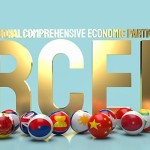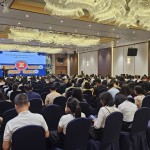Total number of posts 463.
 International experts believe that the implementation of the Regional Comprehensive Economic Partnership (RCEP) will continue to create a new driving force for regional economic growth.
International experts believe that the implementation of the Regional Comprehensive Economic Partnership (RCEP) will continue to create a new driving force for regional economic growth.
RCEP includes 15 Asia-Pacific countries, including 10 ASEAN members, i.e. Brunei, Cambodia, Indonesia, Laos, Malaysia, Myanmar, Philippines, Singapore, Thailand, and Vietnam, and five trading partners, China, Japan, South Korea, Australia, and New Zealand.
Hoe Ee Khor, the chief economist at the ASEAN+3 Macroeconomic Research Office (AMRO), predicted that the RCEP agreement would have an overall positive impact on the medium and long-term economic growth of ASEAN+3 (China, Japan, and South Korea) and the rest of the bloc, with three potential benefits from the agreement's key provisions.
The first benefit will come from the elimination of tariffs on more than 90% of goods traded within the bloc over the next two decades. The second benefit will come from the efficiency gains from a more harmonized set of trade rules and rules of origin, which will allow MNCs to take advantage of other ASEAN+3 economies to reduce their production costs. The third benefit is RCEP's promotability of cross-border trade in services from further liberalization of selected sectors, such as telecommunications and financial services, along with easier labor mobility, e-commerce, and digital commerce regulations.
At the national level, the individual ASEAN+3 economies will reap different benefits in different ways. For example, the RCEP tax cuts will mainly benefit the +3 economies (China, Japan, and South Korea). ASEAN will enjoy immediate efficiency gains and reduced production costs from RCEP's unified code of trade and customs. ASEAN economies are also expected to benefit from higher investment flows from expanding regional supply chains within the bloc over the medium term. Kin Phea, an expert from the Institute of International Relations at the Royal Academy of Cambodia, said that RCEP is a multilateral trade cooperation and its structure really benefits all participating countries as all will be governed by the same commercial rules.
RCEP is the most ambitious regional free trade agreement in Asia, in which China has played a key role in transforming Asia's economy into a core economic pole in order to stop protectionism and the widespread negative effects of the trade war. This super-regional trade agreement is instrumental in subverting escalating unilateralism by bringing together all bilateral free trade agreements into a single agreement.
Ky Sereyvath, a senior economist at the Institute of Chinese Studies at the Royal Academy of Cambodia, said the RCEP has acted as a catalyst for global and regional economic growth. The effective implementation of this trade agreement will become a new focus for global trade in the future.
Source: Cong Thuong News














